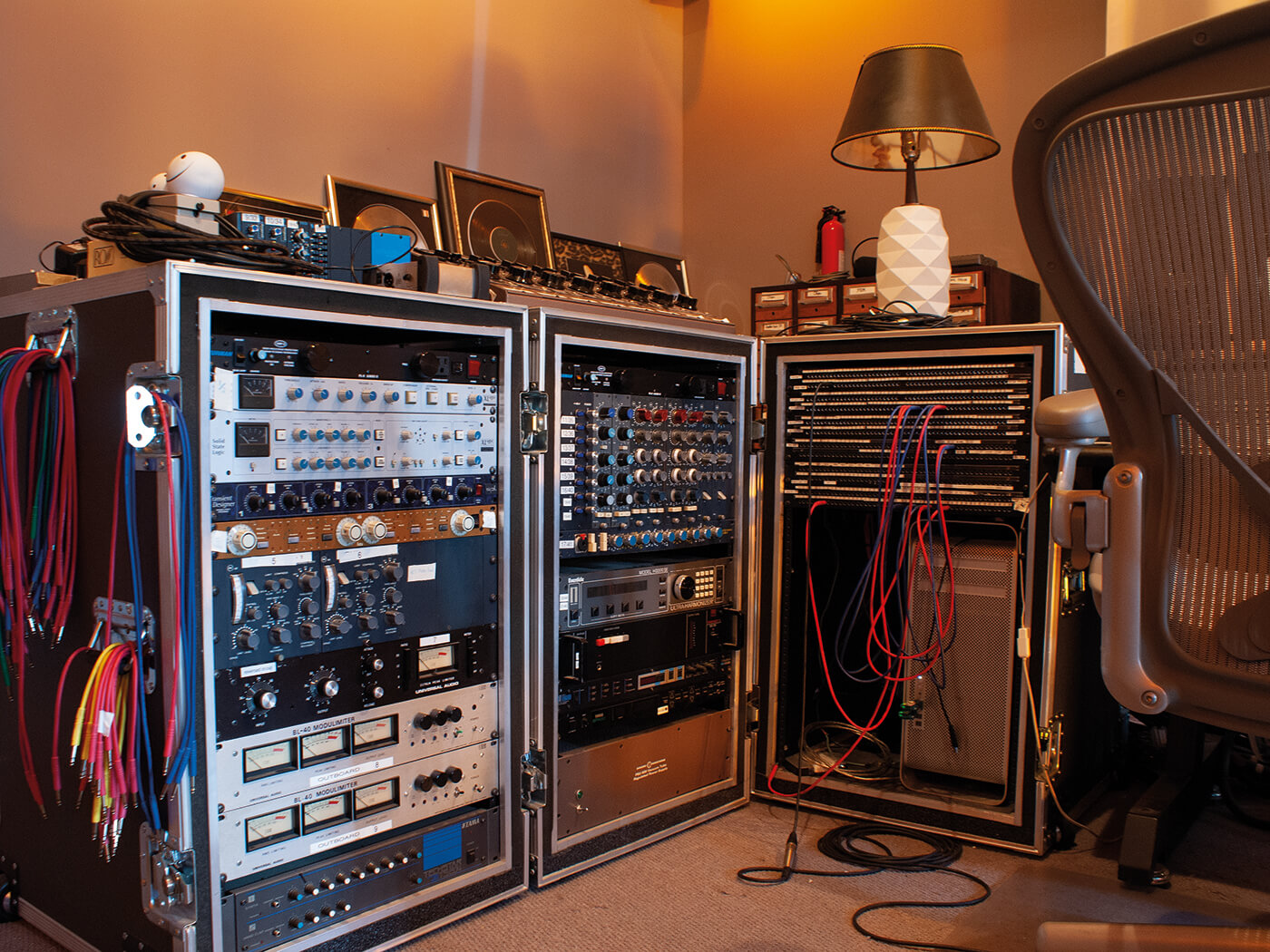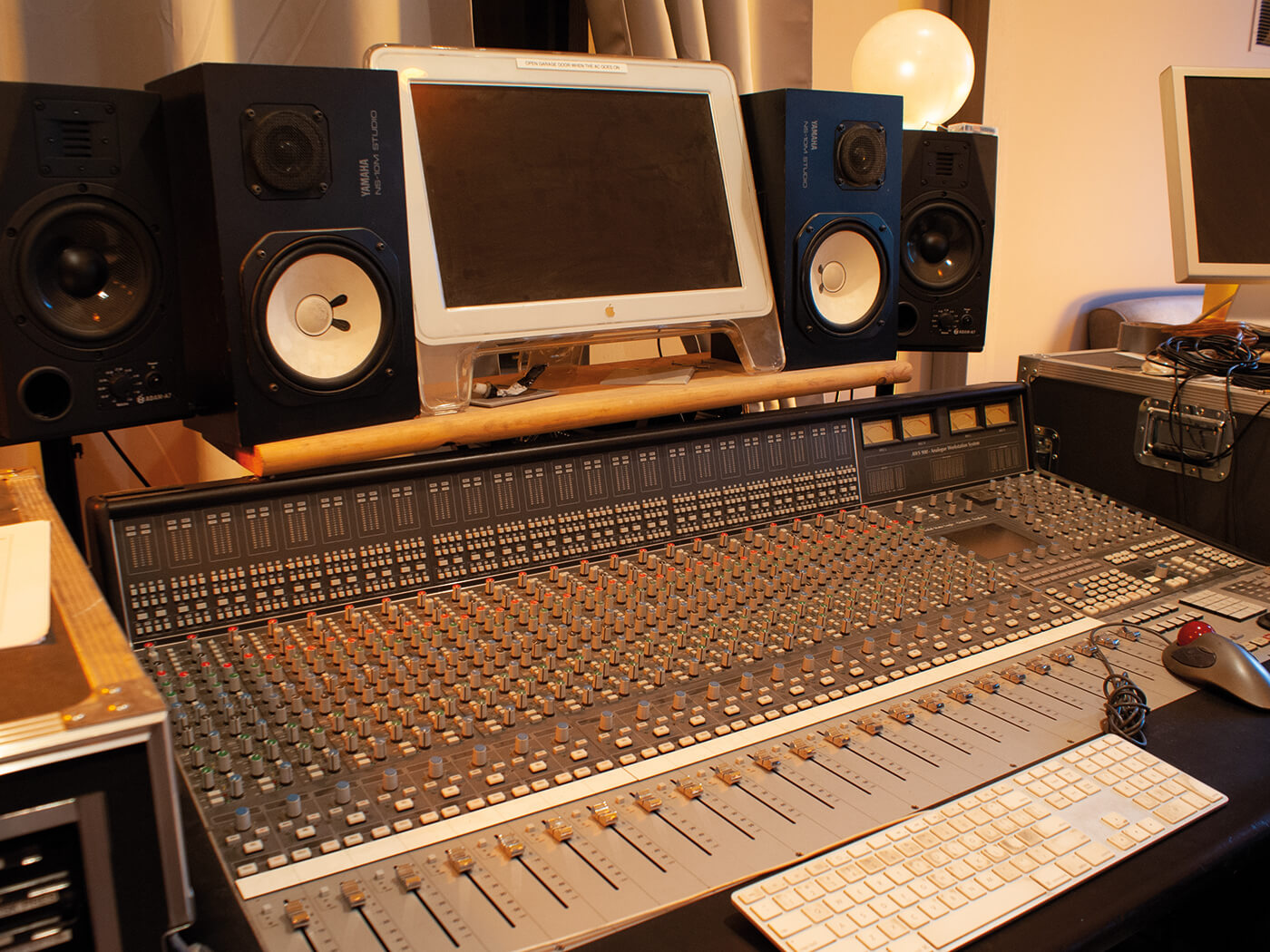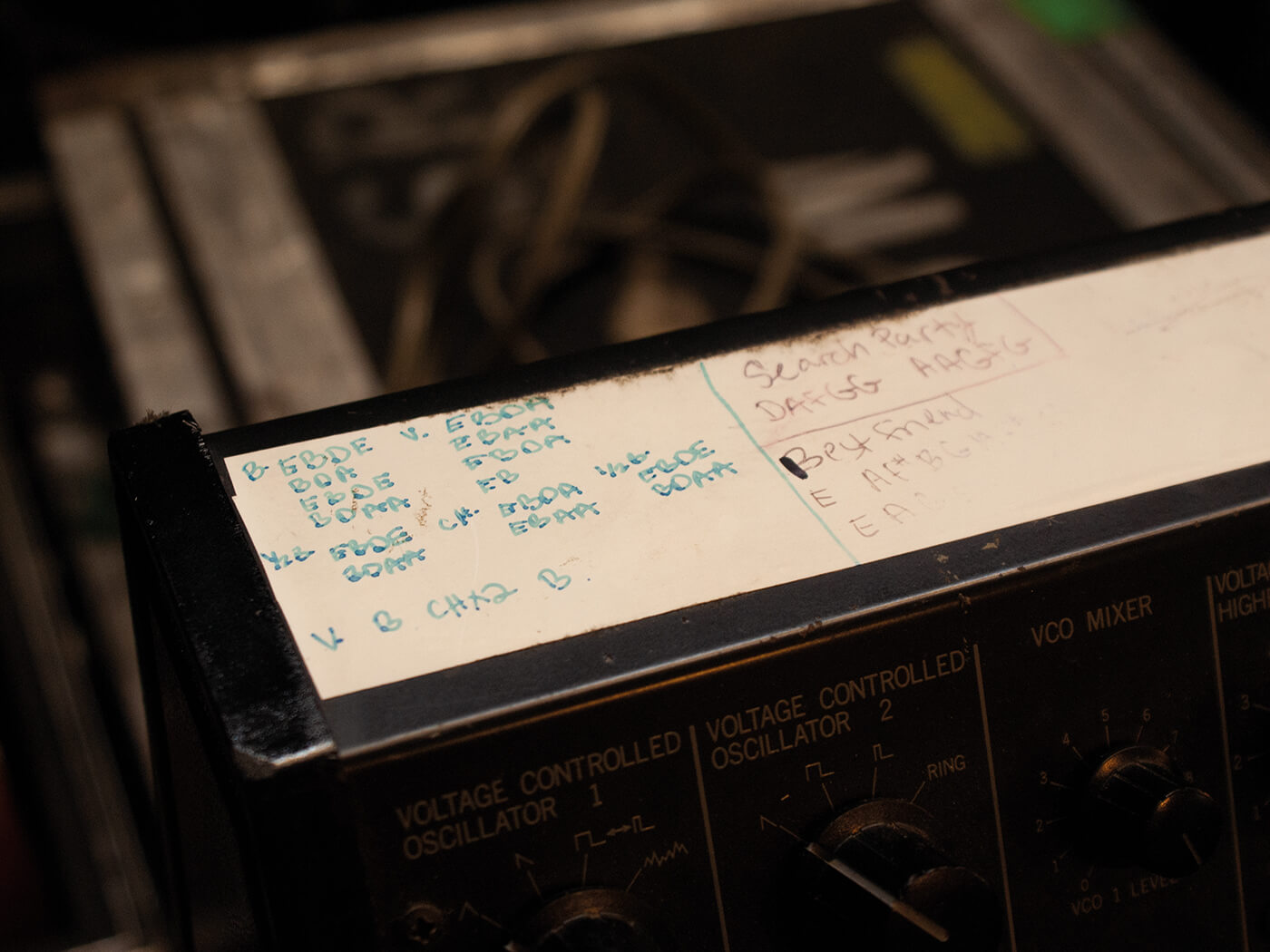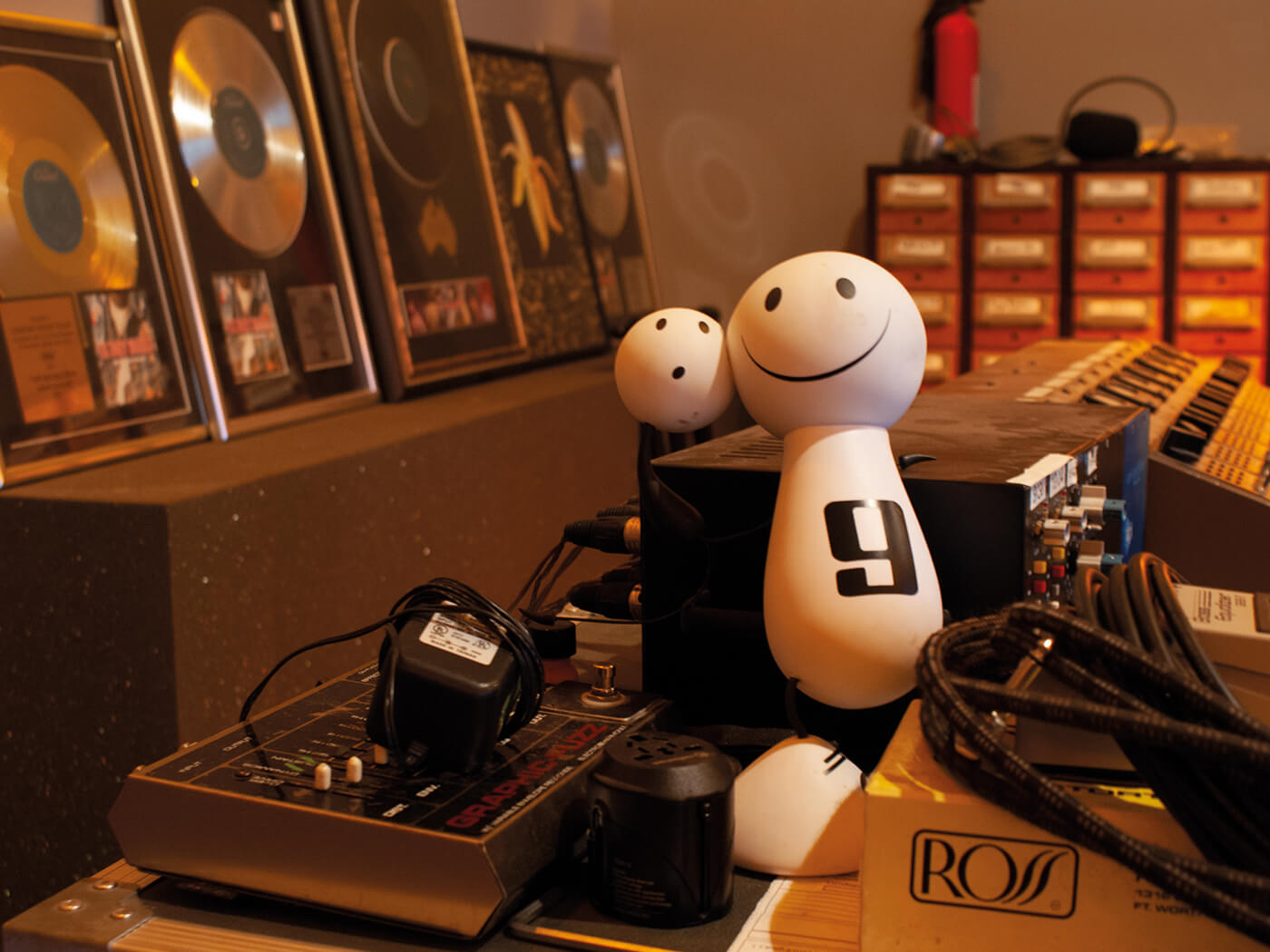The Dandy Warhols’ Zia McCabe on learning via experimentation and building bass lines
With over 25 years in the industry, The Dandy Warhols’ keyboardist, bass player and percussionist Zia McCabe has experienced an ever-changing world of music and continues to challenge herself as a creative musician. We head to The Odditorium in Portland to find out more about her process.
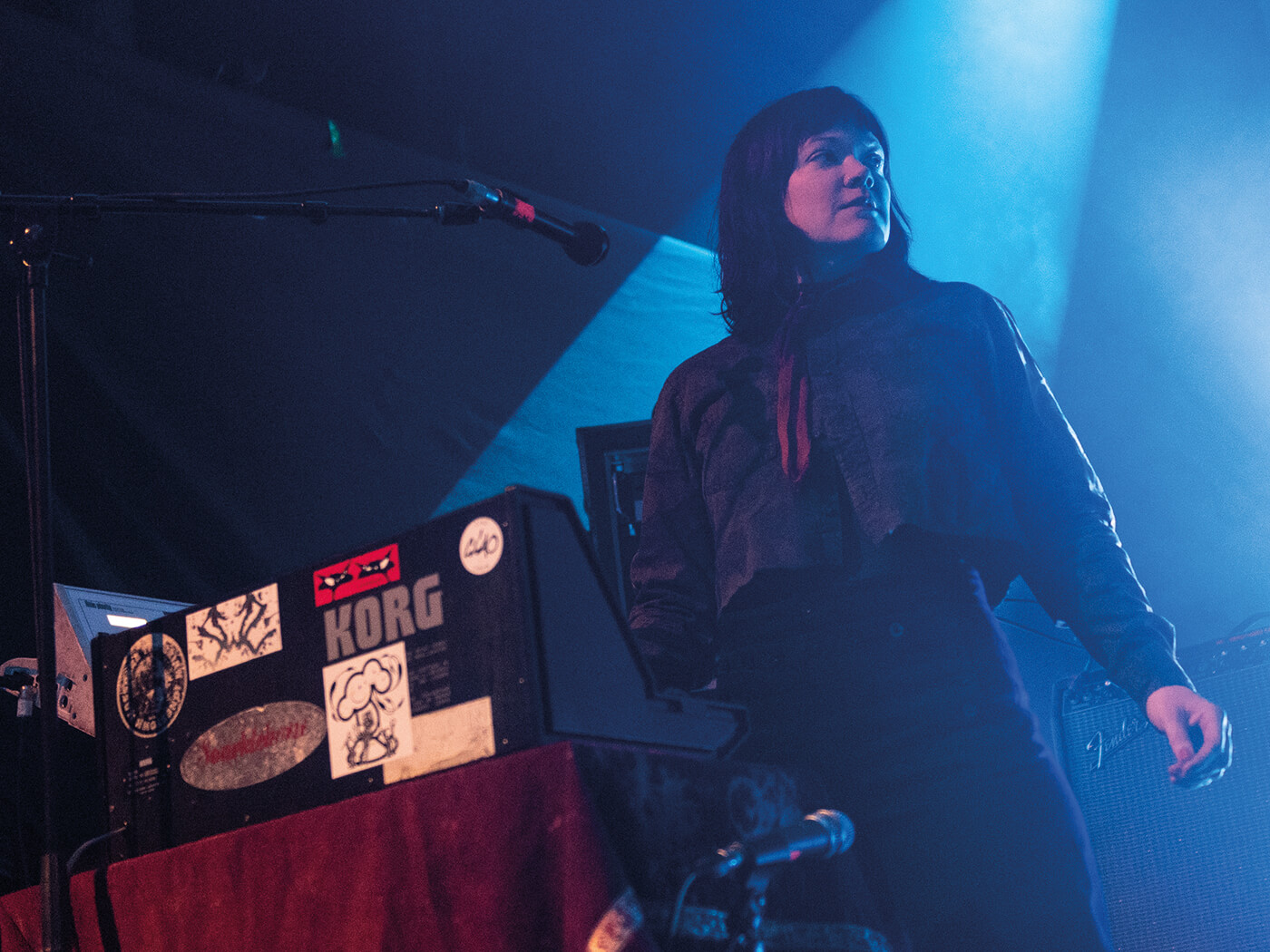
Zia performing with her Korg MS-20 on stage at Glasgow’s Old Fruitmarket during The Dandy Warhols 2019 UK tour. Image: Roberto Ricciuti / Redferns
For the past 25 years, The Dandy Warhols have forged a successful path through a shifting musical landscape with their distinctive cacophony of guitar and synth-based rock ’n’ roll. This route has included recording huge hits like 2000’s colossal Bohemian Like You, We Used To Be Friends and Not If You Were The Last Junkie On Earth, performing alongside The Rolling Stones and David Bowie, as well as hosting the dearly departed Thin White Duke and his band on occasion at their recording and rehearsal space; The Odditorium.
It’s within the fascinating confines of ‘The Oddie’ that we meet the band’s keyboardist, bassist and percussionist, Zia McCabe ahead of her performance at the Rock ’n’ Roll Camp For Girls AMP Awards with her country side project Brush Prairie.
“I feel like I won the rock’n’roll lottery the day I joined the Dandys,” Zia says with a grin. “The difference, that made me even have access to that winning ticket, was that I showed up, and with no real legitimate reason to be considered. Sure, charisma, rhythm. I had a couple of things going for me, but it’s that ‘show up’ thing, even if it’s scary, even if you don’t think you’re good enough, that makes all the difference in the world.”
Master manifester
Taking that first step and moving from dreamer to performer is a tricky thing for anyone to do. It can require near-superhuman levels of confidence and even finding that initial ‘in’ can be tough. For Zia it took place while Christmas temping in a local coffee shop. “I got into music the day I joined the band. I mean that’s almost true. I took a beginning guitar class in college – I got a C. I was not good at it.” Zia recalls. “I met a guy at a coffee shop that I worked at. He said he was in a band and I was like, ‘I’m going to do that!’ He replied, ‘That’s not how it works. You don’t play any instruments!’ I told him that I’m a master manifester and to just let me know if anything happens? That guy was [Dandy Warhol’s founder and frontman] Courtney Tayloy-Taylor’s friend.”
It just so happened that Courtney was on the hunt for a bass player having recently separated with his former bandmate and girlfriend. “He felt that a lot of professional bass guitar players had such bad habits and he didn’t want these guys to join.” Zia remarks jokily. “He wanted someone cool, who didn’t have to know what they were doing. they just had to have a good personality and be a quick learner. His friend then told him about me…”
These days, the next step following such a conversation would be to send a quick text, or DM the relevant person through Facebook or Instagram. 25 years ago such simplicities weren’t as readily available and it was a further five months before Zia and Courtney made contact. “We had a chat, he showed me the Korg MS-10, and said ‘Hold the note until my hand switches chords.’ Luckily, from my guitar education I knew the theory behind chords and that was probably what gave me just enough knowledge to be able to stick with them. I knew the chords better than I knew the notes on a piano and Courtney just wanted a drone, so I just droned.”
“When I got a bit more confident I started to timidly mess with the filter a little, and then we started experimenting with bass lines. At this point I started adding a passing note here, a passing note there, I started to experiment and it just grew.”
Time and space
Fresh off the back of the hugely successful Thirteen Tales From Urban Bohemia the experimenting and growth suddenly ascended to a whole new level, as Zia explains. “I had a big breakthrough while at Massive Attack’s studio in Bristol. I went in extremely nervous, I was thinking – they’re six guys who are going to immediately know that you don’t know what you’re doing. It’s going to be so embarrassing! They put me in a room full of synths, all wired into the same PA with a CD player, a little gel projector and a lava lamp. It was this cute little vibey room and they said, ‘This is your space while you’re here.’
I stayed in the studio all day along with Peter Holmström. Courtney and Brett DeBoer would come in, slap out some ideas and go back to the bar. What they slapped out is still the structure ofthe songs, but having that room gave me the luxury of time and space to think ‘maybe this is a bass line?’ ‘maybe this is a melody?’ and I could move through the various different synths and experiment.”
“Courtney wanted Welcome to the Monkey House to be a synth record.” Zia continues, “So following the Massive Attack session I insisted on my own space, I set up my keyboard room and I also insisted on my own time. Because of the earlier creative breakthrough I was able to rise to the challenge and able to just go to town when recording the album.”
The machine
Being in a touring band that perform a diverse, genre-hopping set certainly affects which instruments you take out on the road. For Zia, the Roland V-Combo and the Moog Sub Phatty have become extremely dependable touring machines and, with a bit of delay in the right places, can create a close representation of the sounds on the record. But there’s one instrument she could never be without, and that’s her Korg MS-20. “It’s my machine. I would never play bass on a different machine. It’s too good!” Zia says fondly. “Although I started on the MS-10. I upgraded to the MS-20, got two oscillators and there’s never been anything that beats it.”
“The MS-20 is so fat and so rich, especially the parameters that I set it up with,” Zia says. “I think I had one that was a little bit broken at one point, but when my repair guys fixed it I didn’t like how it came back from the shop, so I had them come to the studio and, using one of my spares, I said, ‘This is how I play it, this is how I want it to sound.’ They looked at the settings and said, ‘Well, if you knew how this worked, you would never set it up like that!’ That’s always the thing I’ve been a little proud of – knowing that my Korgs are my Korgs and they’re just a little different from everyone else’s Korgs.”
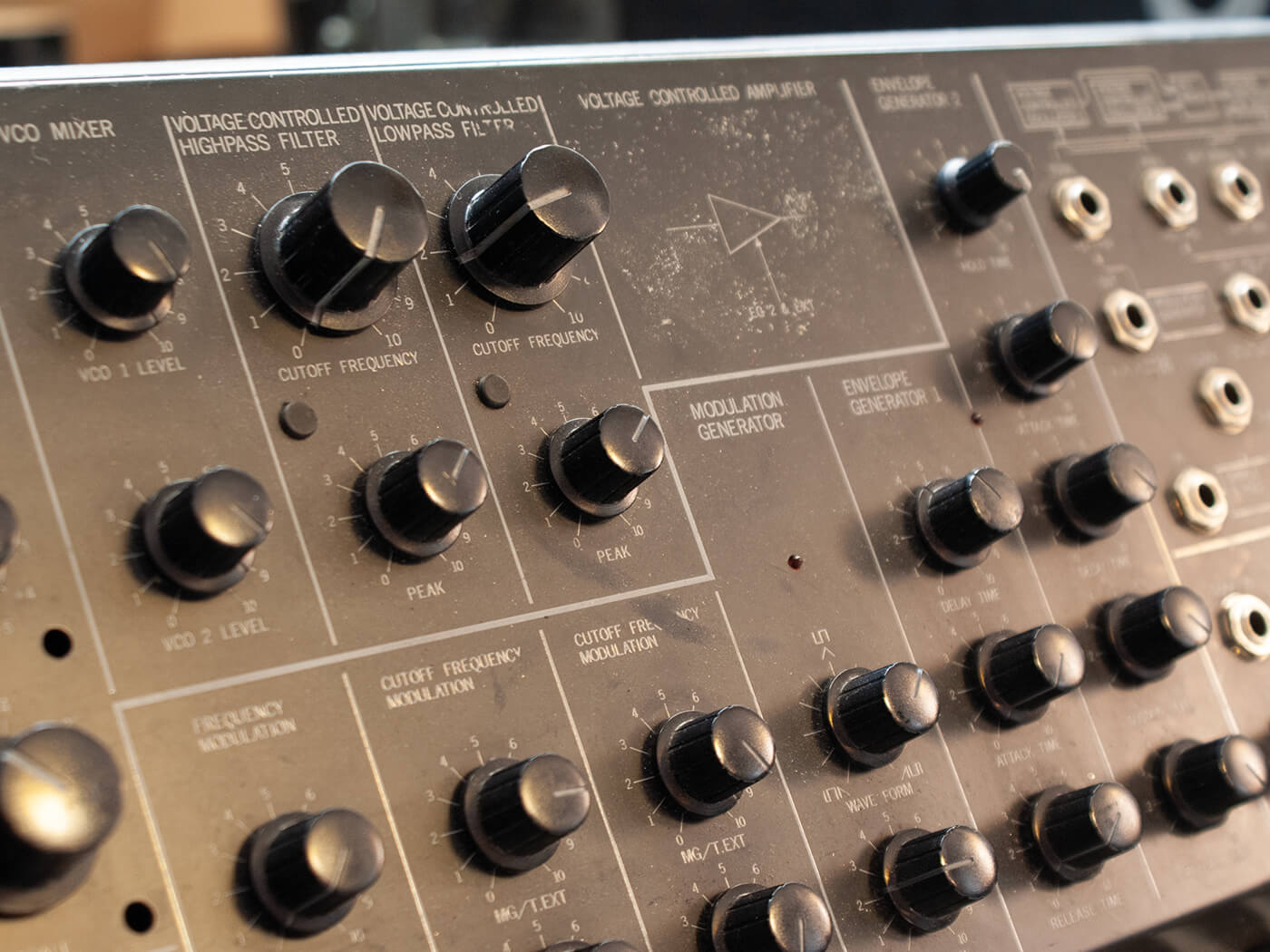
If you’ve seen The Dandy Warhols live in recent years, you’ll be familiar with the sight of Zia’s MS-20 positioned prominently stage front to the right of the drum kit. You’ll also be aware that the band don’t end their shows with an encore. Instead, as the rest of the band leaves the stage Zia is left to close proceedings by having something akin to a mini-rave.
“Getting to do that kind of crazy outro with my synth gives me an opportunity to perform with the machine without the confines of it having to be a bass. Although, I have snuck some of that stuff into our playing, with rate and portamento on more recent records. It’s also not like I’m doing solos during the show – so I get one big fat solo at the end! Everybody understands the show is over and you get to see what the machine does when it’s not in a supporting role.”
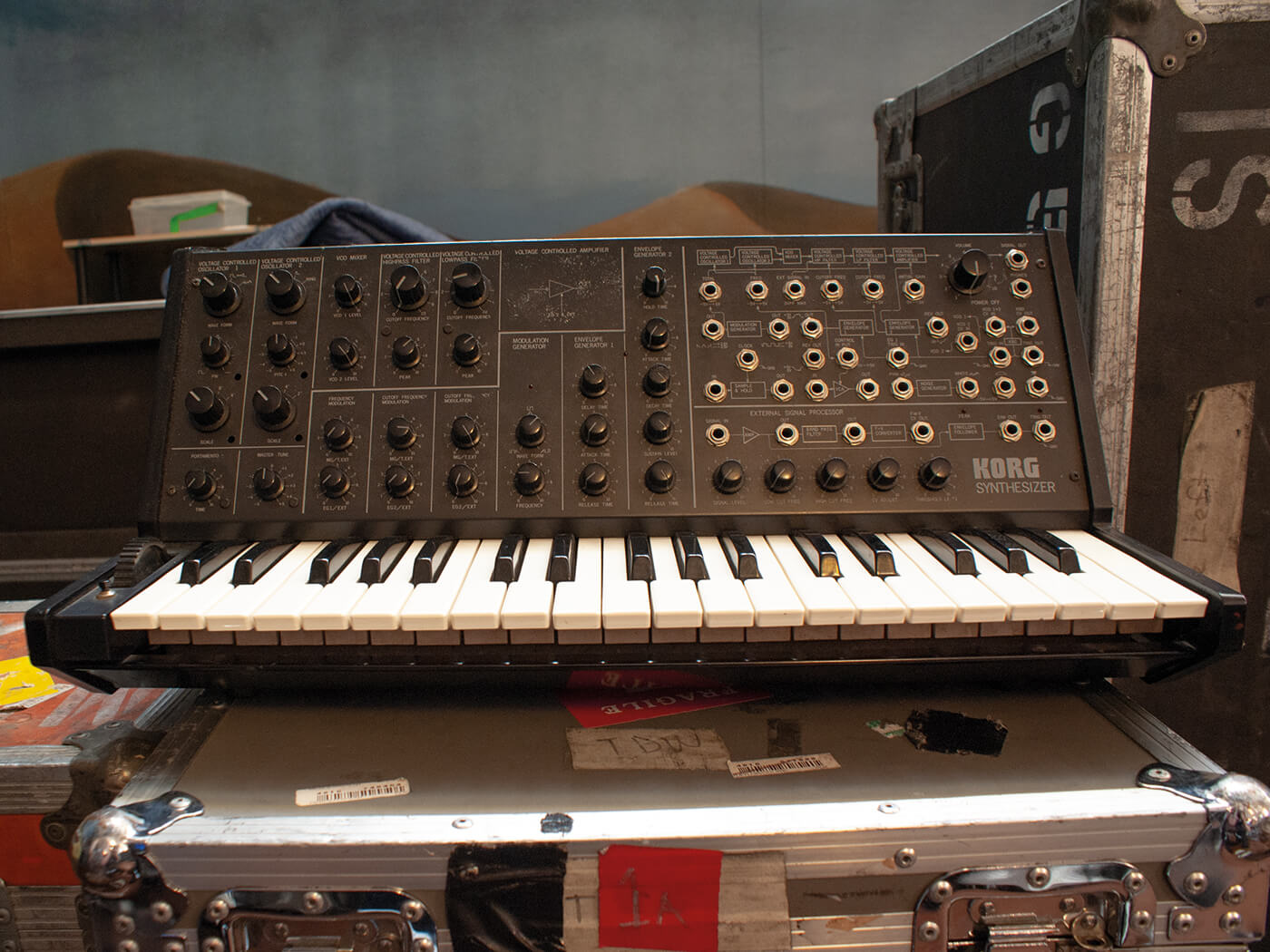
Brush prairie
Away from The Dandy Warhols, Zia’s still heavily involved in music. She’s on the board for Rock’n’Roll Camp For Girls, a charity organisation that looks to build confidence and self-esteem through music creation and performance, as Zia elaborates. “It’s a summer camp for kids of all skill levels. You don’t have to end up a musician, you don’t have to have a dream of having a band, you can just reap the rewards of what it takes to work collaboratively.
There are a lot of skills that come with being in a band that aren’t just about music.” There’s also DJ Rescue and her country band Brush Prairie. “I didn’t set out to make a country project,” Zia reveals. “The way I sing, I don’t have much of a choice! I’m just super twangy. I grew up in a log cabin, I guess that just stays somewhere in your vocal cords.” Zia says, laughing. “I see Brush Prairie as my musical retirement project, not financially, that doesn’t exist! But as a way of making sure music’s always in my life.”
“We started out doing covers. I wanted to sing. I like singing, it’s certainly my most challenging way to participate in music. So I started showing up to a live karaoke project, Karaoke From Hell in Portland. I sang Patsy Clines’ Walking After Midnight and was absolutely terrified, but survived. It might feel like it at the time, but you don’t die! I’ve never jumped out of a plane, but I imagine it’s a similar type of fear and relief. Someone then asked me to do a show of all the covers I was doing with one of the guys in the karaoke band and it just sort of evolved. I slowly thought, well, I guess if I have a band then we should have a name? and I guess I should write a song. I’m very slow and maybe write one every few years, but I love that they fit in with the vintage Honky Tonk country sound.”
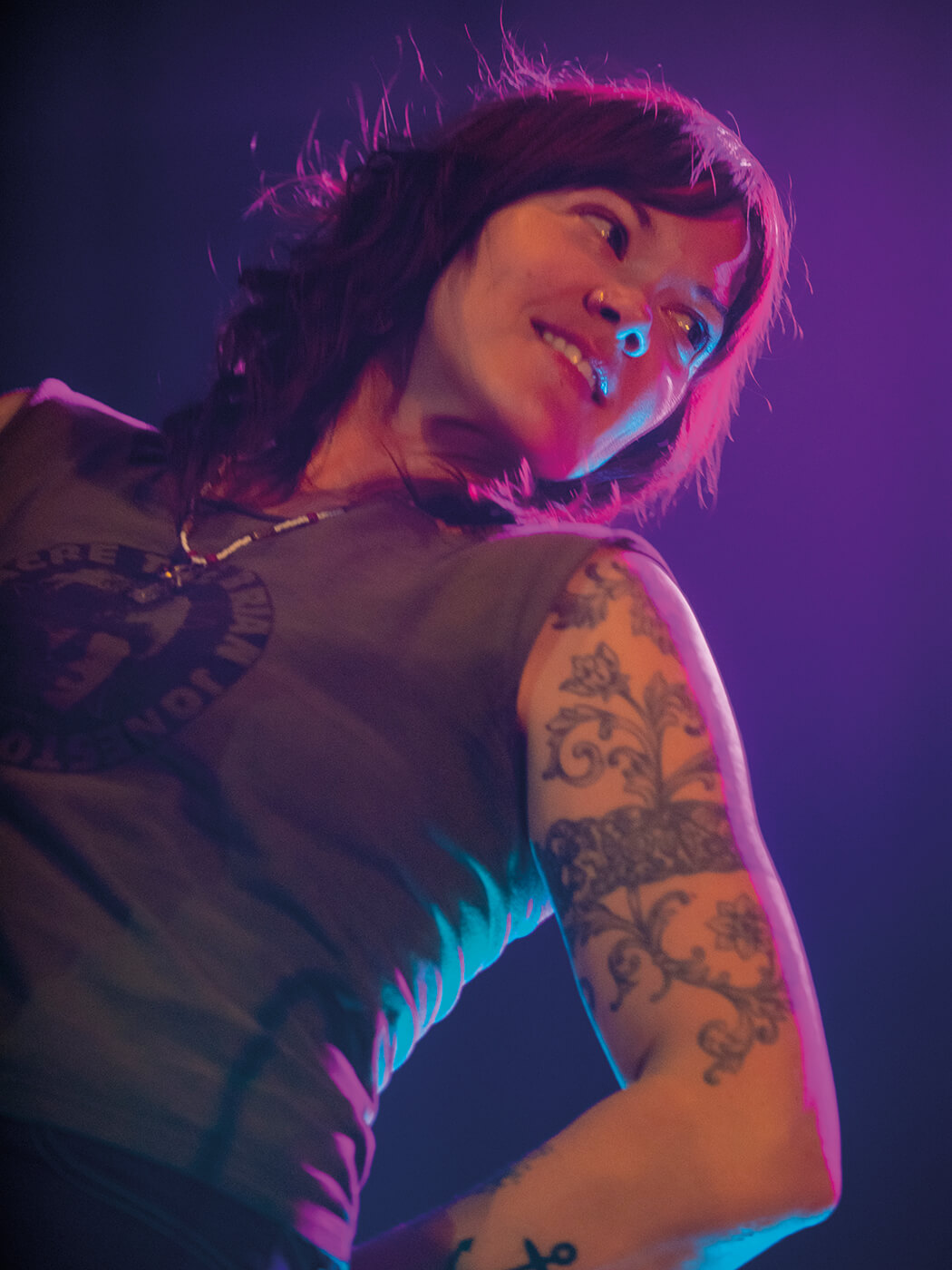
Highlife
In early 2019, The Dandy Warhols released their latest album Why You So Crazy featuring one of Zia’s own songs Highlife. Zia picks up the story. “Courtney was like, ‘Why don’t you put a song on the record, one of your Brush Prairie songs?’ The problem is the songs are all so country, and I mean like really country! We chose Highlife. We initially tried to ‘un-country’ it in arrangement terms, before just recording it and tweaking it at the mix stage. Once it was recorded and I listened back to it, I was able to say, ‘Mute that, mute that, mute everything until all that’s left means you have no idea what song’s going to start.’ Now at the beginning you’re listening thinking Dandys, Dandys, wait what just happened?”
Zia continues, “We tried to make it a little bit Pychobilly. For the bass line, I pretended I was playing the upright bass. I don’t write walking parts like that normally and it’s probably the most complicated bass line I’ve ever written. Then I remembered I was singing on it too! I wish people would see my hands while I’m singing because I’ve got a lot going on behind that Korg wall.”
Don’t force it
Writing parts to fit within a track can be a tricky business, especially when you’re coming in towards the end of a process and everyone else has had their fill. If this is something you find challenging, Zia has a couple of words of advice for you. “A lot of times I’ll write a busier part and then simplify until it fits appropriately in the song. My parts have been called remedial and I’m like, that’s a rude way to put it, but I guess technically they are. More accurately I would call them essential. I’m playing what needs to be played to support the other instruments. Bass is a fairly supporting role, but it is fun when a busier part finds its way in. Beast Of All Saints has a beautiful circular, walking M.C Escher bass line. Do I love every time I get to do that? Yes. Do I force it on the song just so I can? No.”
“I was hanging out with Gail Ann Dorsey, who was David Bowie’s guitarist, we were having a jam session here at The Oddie and Bowie’s piano player, Mike Garson, was teaching me a few things on piano. Gail told me I had something he didn’t, I asked what that was and she said, ‘you know when to not play.’”
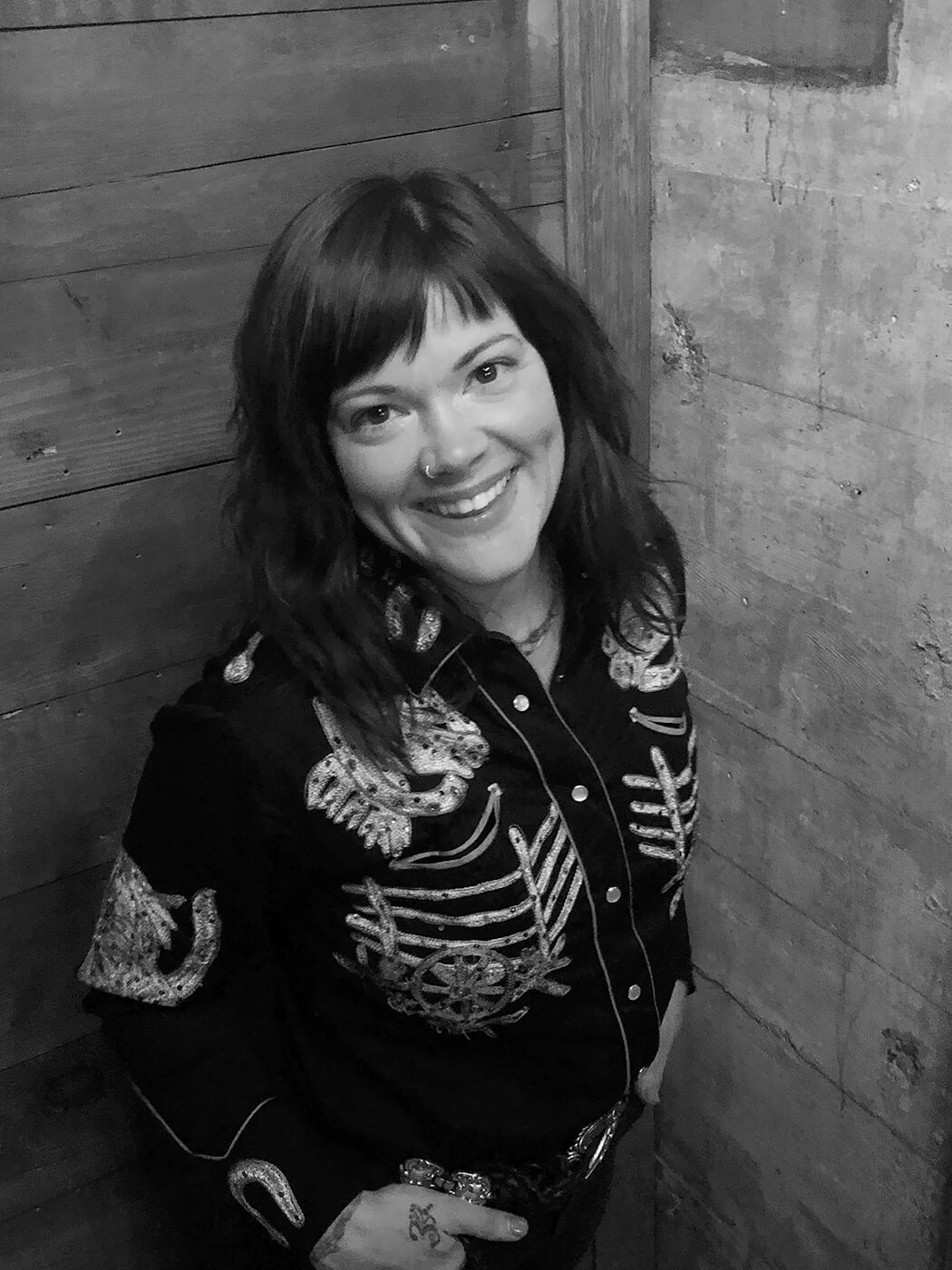
From keys to strings
Zia explains some more about how, synthesizers aside, she creatively approaches bass and guitar. “I love playing bass guitar, I love coming in and recording it and I love the parts I
write. The last record was the first time that I could play bass guitar well enough, that every song I had the choice, a personal artistic choice to say, ‘what does this sound like with a bass guitar? What kind of parts do I write with it? What does this sound like with the synth bass?’ Then ultimately I have to choose which one fits the song better. It’s all about expanding my options, especially when you’re in year 25, you don’t always get to just open up a whole new world by adding an instrument. Going from bass synth into bass guitar is dramatically different and when I listened back to those recordings, it switches. It’s less our signature sound.”
“It really changes it a lot, and I think it changes it enough to where it should never be more than 30% of what you hear from us. It’s too much of a departure, and that’s good to know. Because it’s so new and fun to play. Also, I can’t add percussion. I can’t add a synth melody, or lead, or organ patches to support the song that way, so having both hands on one instrument limits me.”
Bass fundamentals
“Normally, people add bass in quite early to a track – as a building block,” Zia explains, “but I almost always record at the end. Courtney or Brent do a lot of writing on acoustic guitars or their little digital studio setups using GarageBand instruments and then they come in and start to shape it up with their rough chord changes, vocals and melody. Once those fundamentals are in, we get sent the demos. I don’t do a lot of participating in the core songwriting. I traditionally record by myself with an engineer.
Sometimes in Peter’s basement. He has a studio so sometimes that’s just easier and quicker. Unfortunately, with Brent living in Australia now, we have much less playtime. Our rehearsals are to knock the cobwebs off, figure out our transitions and get our shit together before we tour. It’s always just really tight on time. Brent is jet-lagged, we’re leaving in three days so that luxury of all being in the same city is gone now!”
For more information and ticket details for upcoming shows visit dandywarhols.com. Head here for more MusicTech interviews.
